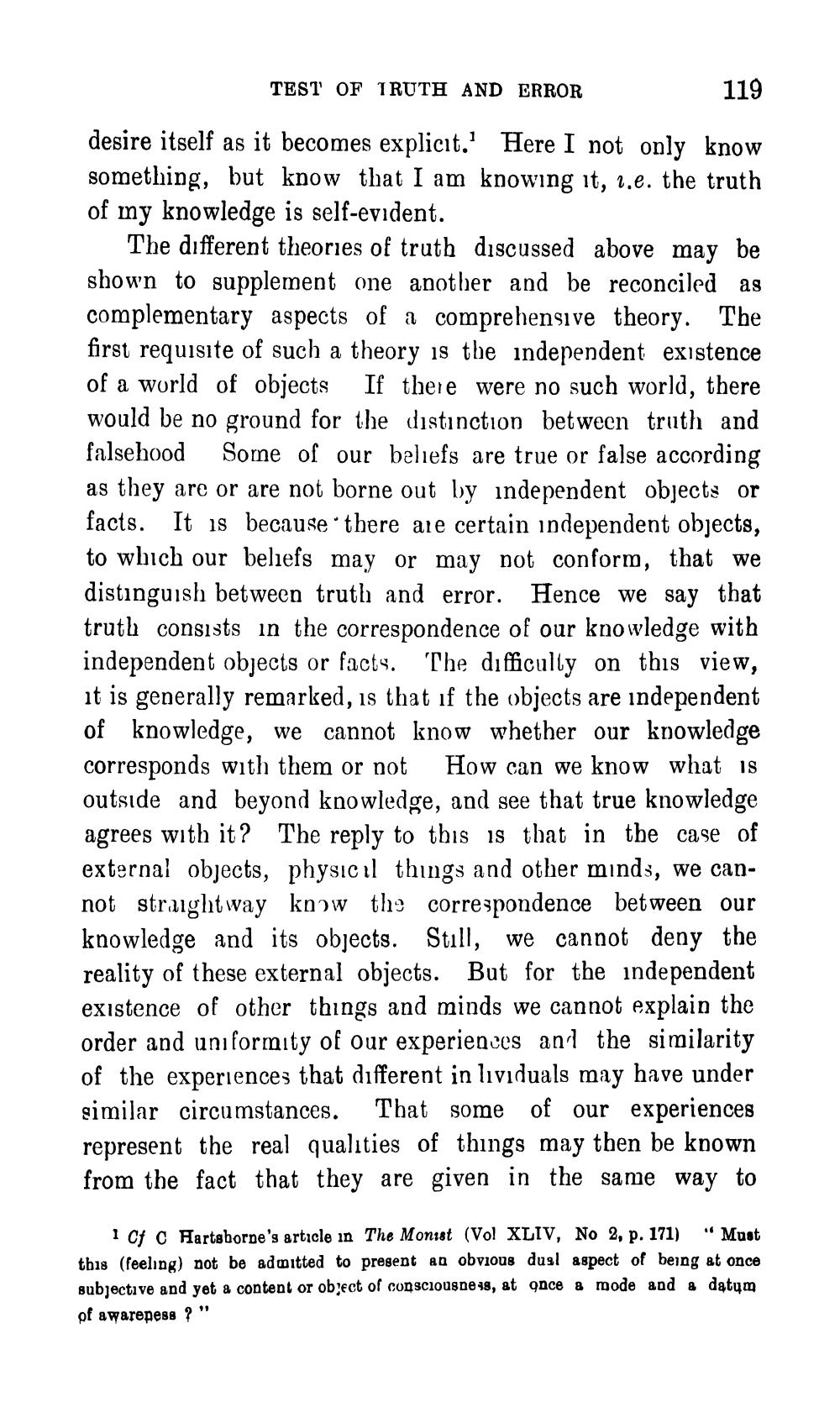________________
TEST OF TRUTH AND ERROR
119
desire itself as it becomes explicit.' Here I not only know something, but know that I am knowing it, 1.e. the truth of my knowledge is self-evident.
The different theories of truth discussed above may be shown to supplement one another and be reconciled as complementary aspects of a comprehensive theory. The first requisite of such a theory is the independent existence of a world of objects If there were no such world, there would be no ground for the distinction between truth and falsehood Some of our beliefs are true or false according as they are or are not borne out by independent objects or facts. It is because there are certain independent objects, to which our beliefs may or may not conform, that we distinguish between truth and error. Hence we say that truth consists in the correspondence of our knowledge with independent objects or facts. The difficulty on this view, it is generally remarked, is that if the objects are independent of knowledge, we cannot know whether our knowledge corresponds with them or not How can we know what is outside and beyond knowledge, and see that true knowledge agrees with it? The reply to this is that in the case of external objects, physical things and other minds, we cannot straightway know the correspondence between our knowledge and its objects. Still, we cannot deny the reality of these external objects. But for the independent existence of other things and minds we cannot explain the order and uniformity of our experiences and the similarity of the experiences that different in lividuals may have under similar circumstances. That some of our experiences represent the real qualities of things may then be known from the fact that they are given in the same way to
1 Cf C Hartshorne's article in The Monist (Vol XLIV, No 2, p. 171) "Must this (feeling) not be admitted to present an obvious dual aspect of being at once subjective and yet a content or object of consciousness, at once a mode and a datum of awareness?
11




